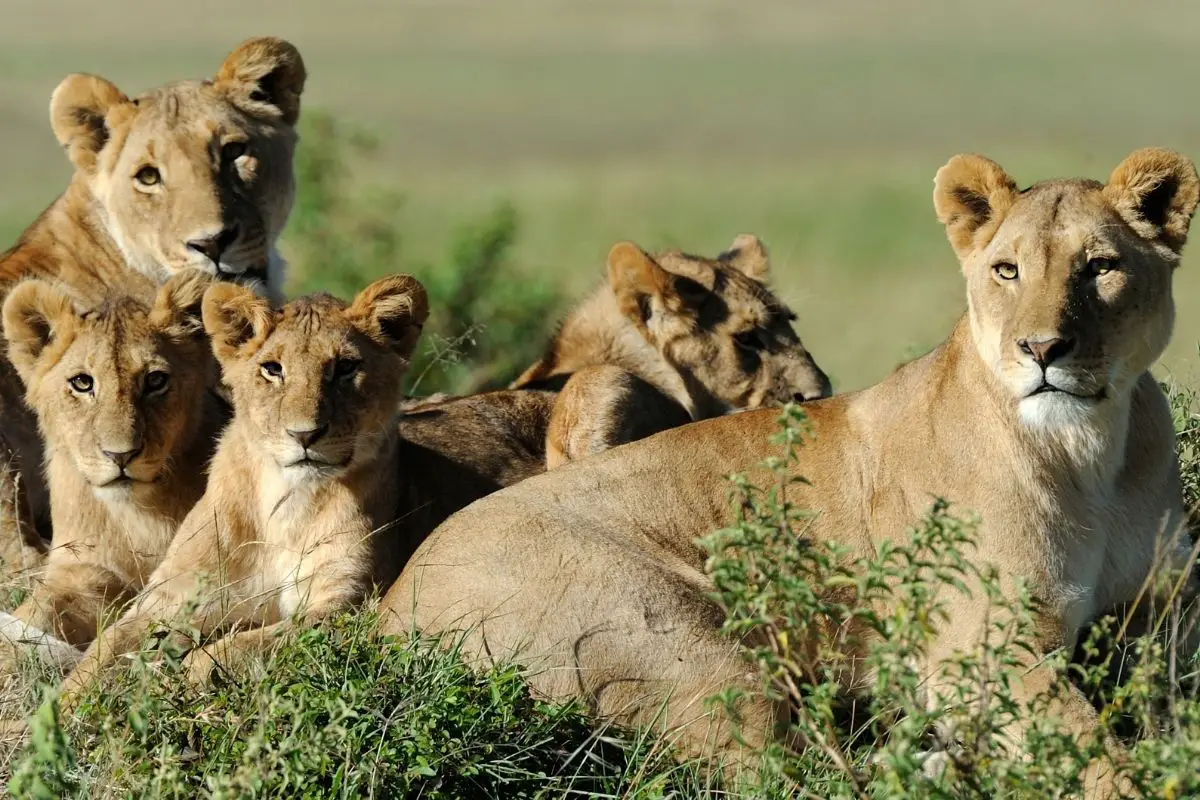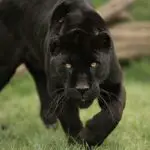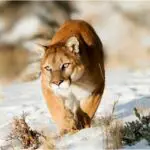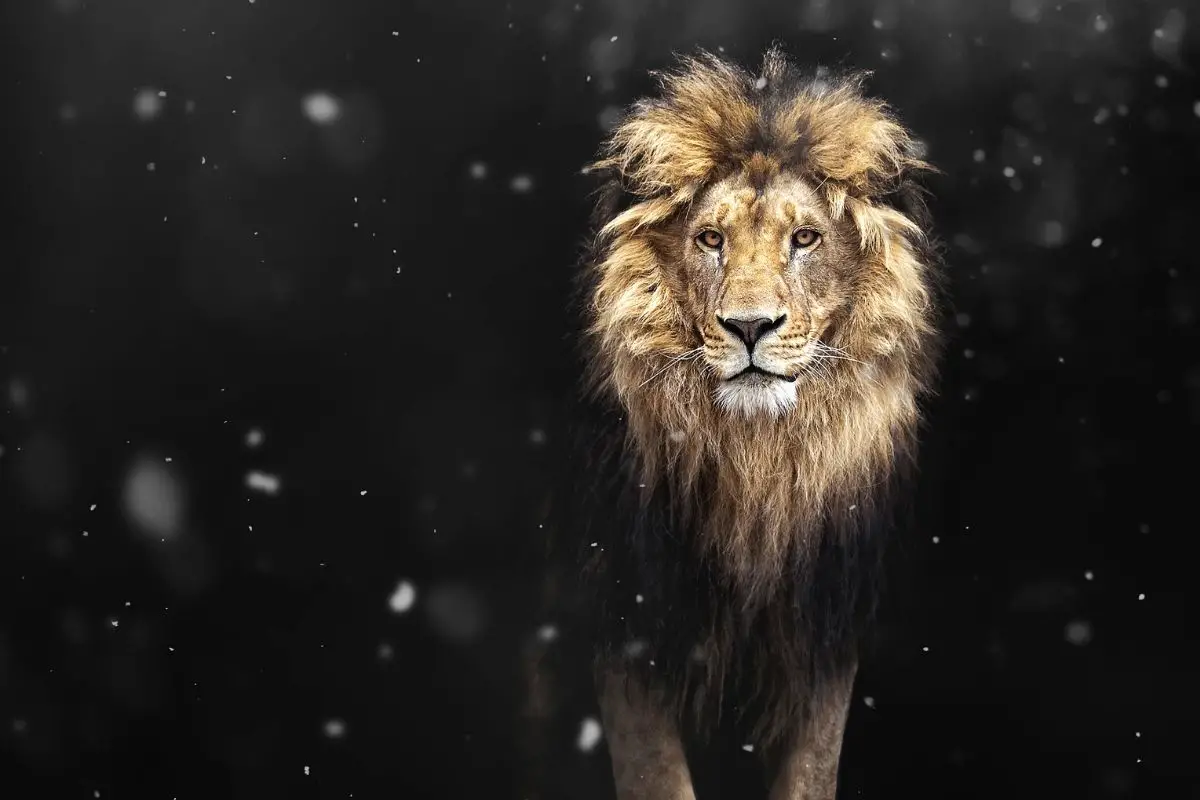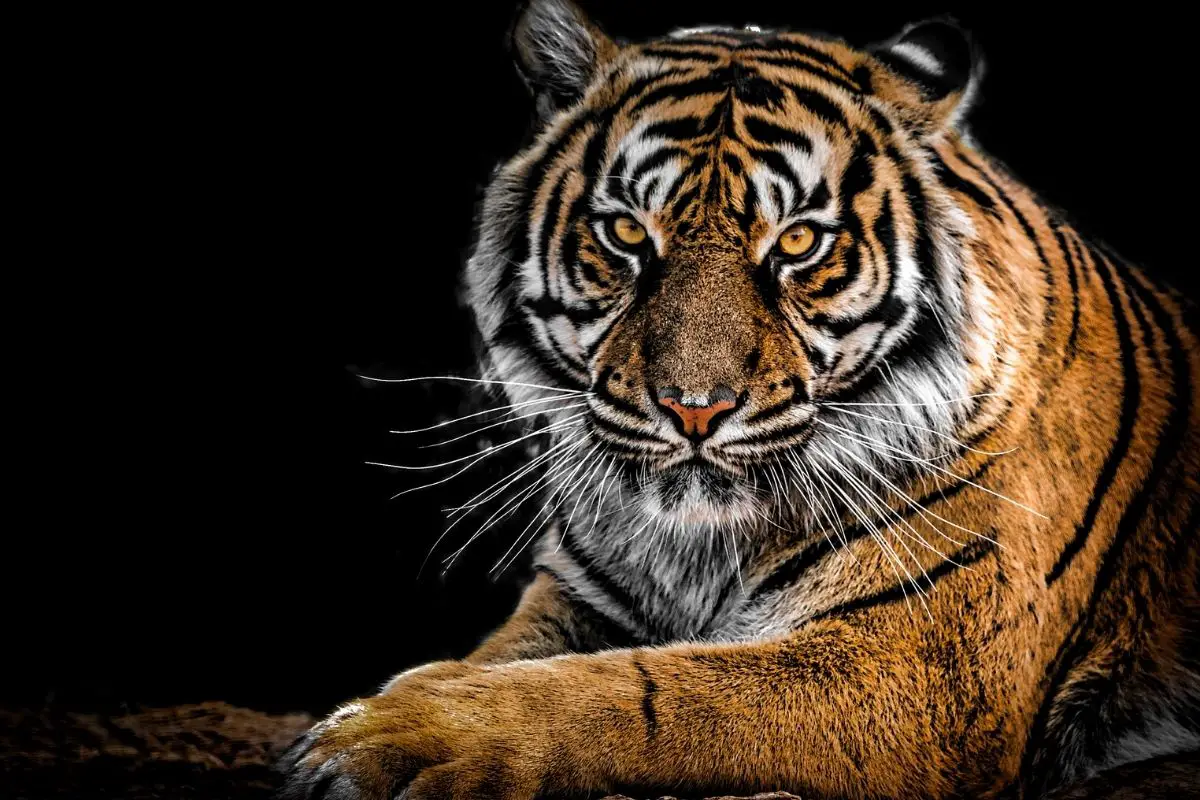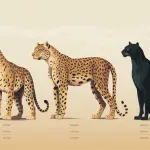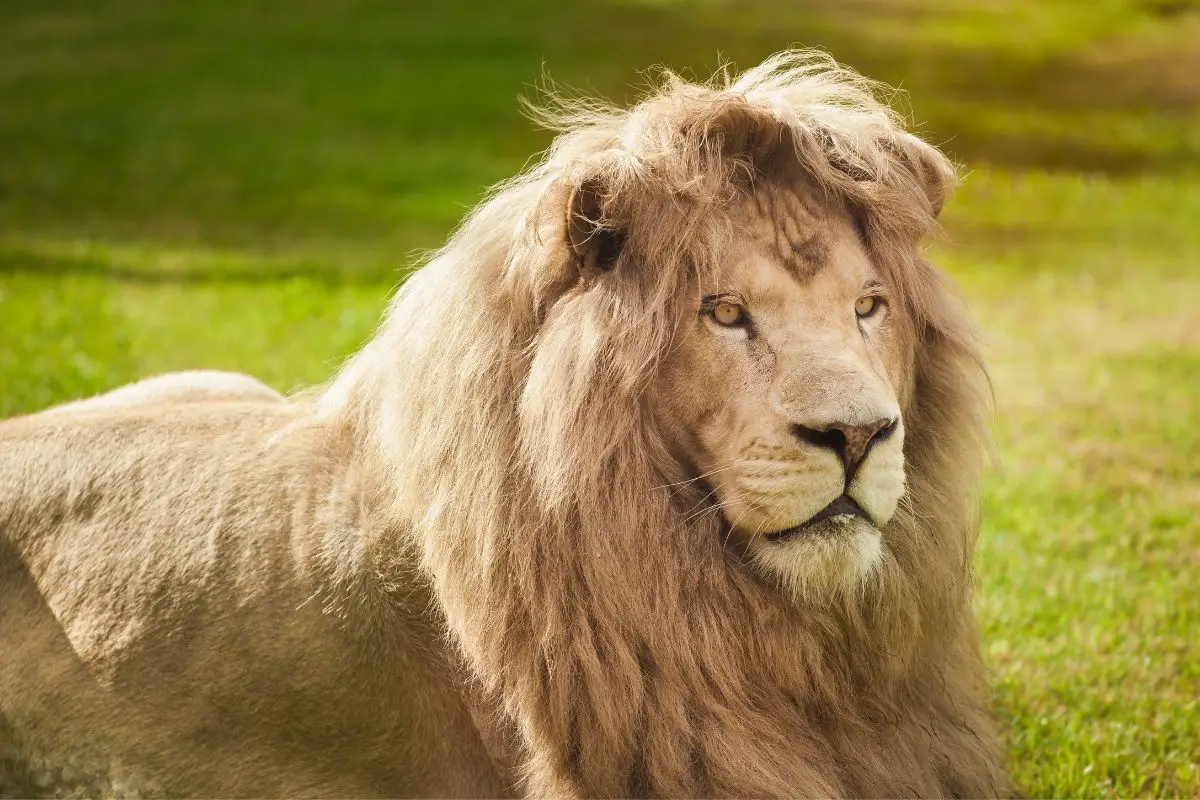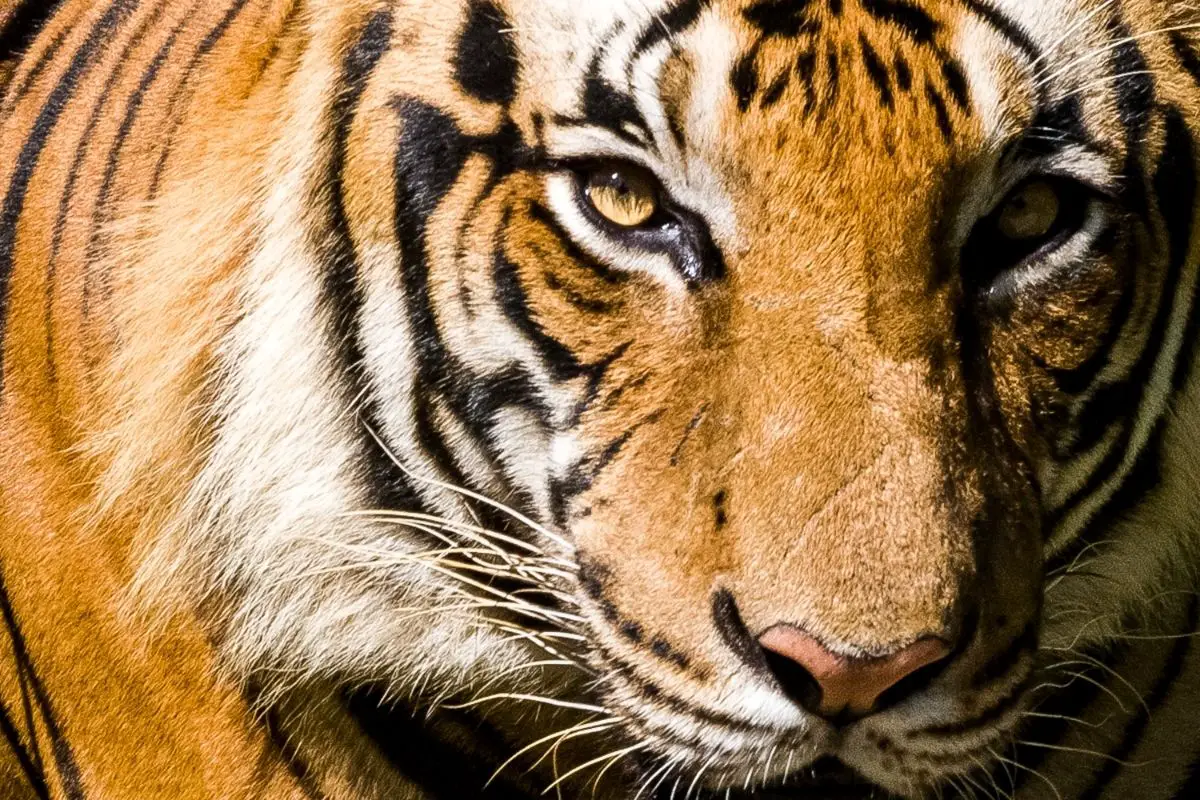Southwest African Lions are proud, noble creatures that live in many areas of Southwest Africa. They are skillful hunters, fierce guardians of their lands, and are a symbol of strength, courage, and pride not just in Africa, but in many cultures worldwide.
If you want to know more about these fantastic creatures, this article will tell you everything you need to know!
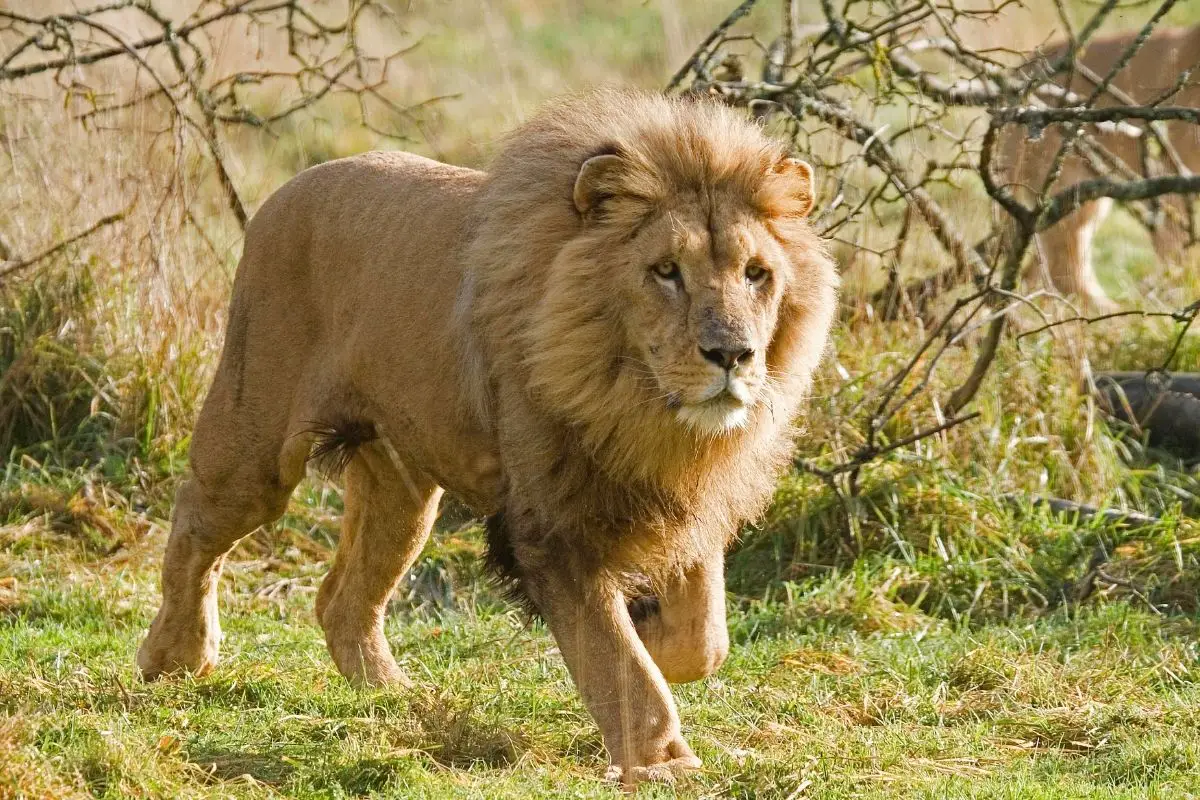
Where Does A Southwest African Lion Live?
Unsurprisingly, given the name, the Southwest African Lion lives in Southwest Africa. Its habitat covers a large area – they can be found in Botswana, Angola, Zambia, Zimbabwe, Namibia, and the Democratic Republic of the Congo.
As such, they are a common source of pride amongst many African countries, and are often seen as a symbol of strength and courage in many cultures.
African lions used to have a far larger habitat than this, however. African lions used to be found not just in these countries, but across the majority of the African continent.
Not just that, but they also claimed dominion over parts of Europe and Asia. However, their habitat has been reduced significantly over time. They have lost an estimated 94% of the range of lands they once roamed.
Now, lions as a whole mostly only exist in the wild in some parts of sub-Saharan Africa.
Southwest African Lions prefer to socialize and hunt in groups, called prides. They are territorial creatures that guard their domain fiercely. The area the pride inhabits is protected by patrolling males.
Despite their nature as social animals, lions are still individuals, and disputes and aggression can often occur within prides. This can be especially notable at mealtimes, where every lion tries to eat as much as they can as quickly as they can.
The natural habitat of the Southwest African Lion is in parts of Africa that have grasslands, savannas, and open woodlands.
They are adaptable survivors, and can actually survive in most habitats. However, they are unsuited to desert life, and likewise cannot live in areas of rainforest either.
Some estimates put the total number of lions in Africa at as low as 25000 individuals. It is thought that there are only half as many lions remaining in the wild as there were just 25 years ago.
The vast majority of threats to lions come from humanity. In particular, trophy hunting and poaching can be attributed to causing the deaths of many wild lions.
What Does A Southwest African Lion Eat?
Just as with all big cats, and indeed all felines, Southwest African Lions are obligate carnivores. This means that they must consume meat to survive. Therefore, they must be excellent hunters, as an animal of this size of course requires a lot of sustenance.
Indeed, the lion is legendary for its hunting prowess. They are known for co-ordinated hunting, using group tactics to bring down their prey.
The females of the group do the majority of the hunting, while males guard the cubs and watch for threats. They circle packs of prey animals and pick out the weakest members.
After all, hunting is survival – there’s no fair play when it comes to staying alive in the animal kingdom.
Lions prefer to kill larger animals such as zebras, antelopes, wildebeest, and warthogs. However, food is food, and they will hunt, kill, and eat smaller prey if necessary.
They also are not above scavenging – finding food is by far easier than having to hunt, catch, and kill it.
They’ll not only feast on dead animals that they find (often using the presence of vultures to help them detect a meal), but they will also scare other animals away from their own kills in order to steal food without a fight.
Once they have their food, they will often eat as much as they can, as their next meal could easily be days away.
If they find they can’t finish their meal, they’ll rest up next to it until they can eat more. They can eat enough to keep them going for multiple days this way.
Are Southwest African Lions Endangered?
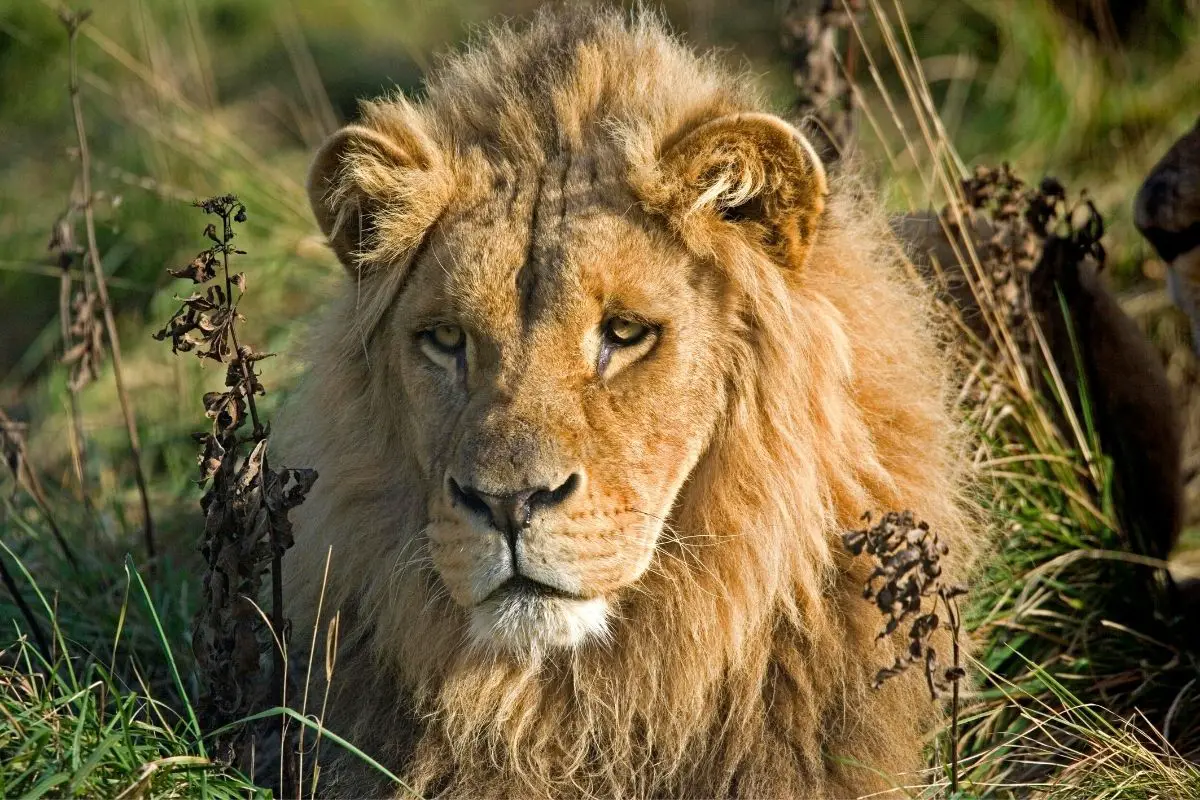
The Southwest African Lion is classed as an endangered species.
Due to extremely low population numbers in Africa, and the fact that population levels have fallen so dramatically, they are classed as vulnerable to extinction by the International Union for the Conservation of Nature.
The largest reason for the threat to the continued existence of the lion as a species is due to humans.
Not only have lions been largely driven from their habitats as humanity has claimed dominion over them, but they are senselessly killed by humans for sport due to their status as proud, strong creatures.
While living in the wild is not without its dangers, the simple fact is that the most pressing dangers to lions in Africa come from humanity.
Humans have affected the natural world in many ways – and unfortunately, as a species we’ve made it much harder for some of the most magnificent creatures to survive.
Not just that, but lions are being actively killed by humans. Some of the killing is at least grounded in understandable fears – farmers worrying about the safety of their livestock and their own livelihoods have been known to take final measures against lions.
Poison is sometimes used to kill them. In some instances this has been a preventative measure, but there are also regrettable and unnecessary instances of revenge killings against lions.
Another key threat to lions is trophy hunting. Far too many lions are killed senselessly by hunters for no good reason. Hunting has completely eradicated lion populations from some regions which they previously roamed.
The reputation the lion has as a symbol of courage and strength has ironically made it a target for hunters, many of whom are not discouraged by the fact that their activities are illegal in many parts of Africa.
They are also a target for poachers, further pressuring them needlessly.
How Long Does A Southwest African Lion Live?
Southwest African lions can actually live for up to 30 years in some instances.
However, this is generally thought to only be possible in captivity, where the lion can not only be regularly fed without need to hunt for food, but can also receive medical treatment that it could never get when living freely in the wild.
A wild lion can usually expect to live no longer than 15 years. This is because life in the wild is incredibly tough – not least for a species that must be able to hunt, fight, and kill in order to survive.
The older a lion gets, the weaker it becomes, of course – and with each ounce of strength lost, survival becomes a little bit harder.
In captivity, a cut, wound, or broken bone can be healed. Illnesses can be treated, and lions can live a lot longer than they would normally in the wild.
A free roaming lion, on the other hand, has no such safety net. A broken bone can mean death for a lion. If they can’t run, they can’t survive.
Furthermore, a lion in the wild has to deal with the threat of humans, perhaps the biggest threat to the species as a whole. Humans are largely responsible for the massive decline in local lion populations.
Therefore, as life for lions in their natural home is already so hard, it lies upon humans to do everything we can to make sure that the growth and development of our species doesn’t come at their expense.
Especially as so many deaths of lions at the hands of humans are senseless and unnecessary.
How Large Are Southwest African Lions?
Lions are of course some of the largest of the big cats, generally second in size only to tigers – not counting cross breeds such as ligers, of course.
Of all lions, the Southwest African Lion is one of the largest subspecies. The adult males can reach a size of up to 10 feet in length as a matter of course, with some examples being even larger.
Females come in at a slightly smaller length, but are still large beasts that max out at around 8.5 feet as a general rule.
Standing on all fours, the average adult lion is between three to four feet tall from floor to shoulder. Given such a huge length and height, it’s no surprise at all that the Southwest African Lion is such a heavy creature!
The males can weigh anywhere from 330lbs up to a massive 550lbs. The females aren’t too much lighter either, generally weighing only around 20% less than males. An average female Southwest African Lion weighs between 230 and 350 lbs.
Even the cubs are pretty hefty creatures! A growing cub can average at around 170 lbs in weight!
The average male in the USA only weighs around 197 lbs in comparison, meaning that these relatively small cubs are already most of the weight of a fully grown adult human. Given the sheer size of these beasts, it’s no surprise that they need to eat so much!
Conclusion
Southwest African Lions are such fantastic creatures that it’s a real shame how humanity has made survival harder for them. Hopefully, this article has helped you learn more about these magnificent big cats!
- Bengal Cat vs Wild Bengal Tiger: Complete Comparison 2025 - October 31, 2025
- Complete Wild Cat Spotting Guide for Hikers 2025 - October 31, 2025
- Lynx vs Bobcat: Complete Field Identification Guide 2025 - October 30, 2025

